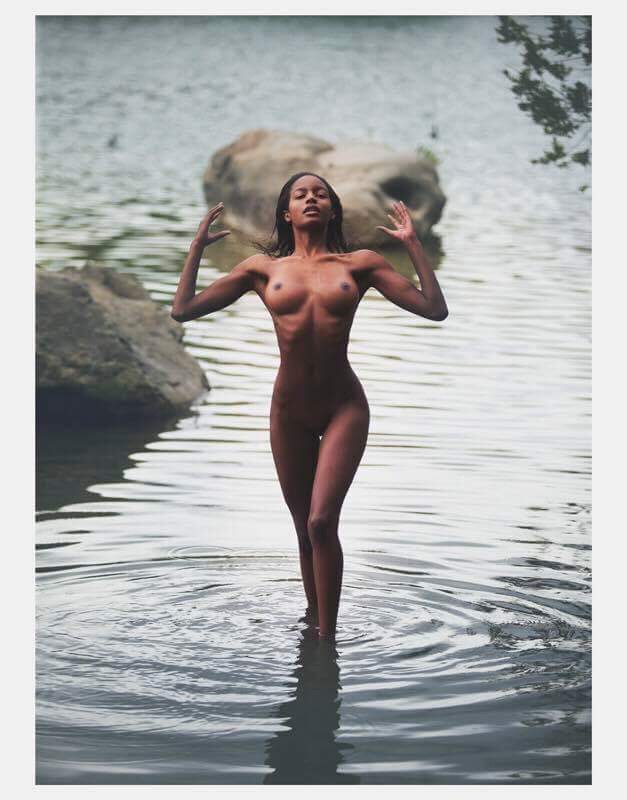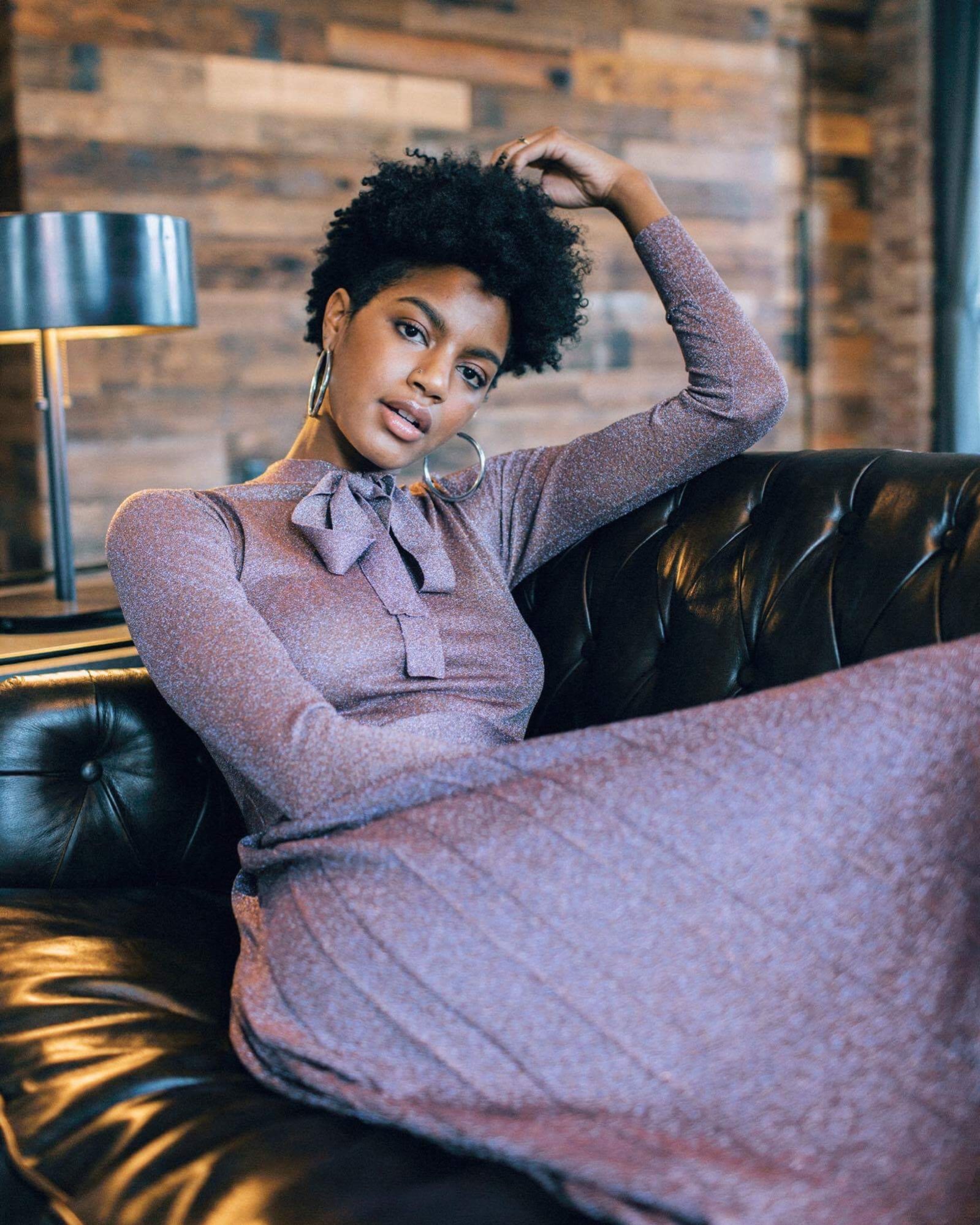Am I doing this woman thing right? Do you do this woman thing the same as me? Does it matter? Existential lady crisis — we all have it. Notes on Being a Woman is an ongoing series that examines the many myths and meanings of what being a woman is all about.
In 2016, 25-year-old model Ebonee Davis turned activist following a combination of numerous killings of young black men in America and being constantly told by her agents she was never the right kind of black to succeed in an industry she’d dreamt about working in since she was a little girl.
Growing up in Seattle, Ebonee moved to New York to pursue a career in modelling. Though she knew she didn’t look like all the tall, blonde-haired, blue-eyed girls she saw on billboards and TV, she assumed that once she signed a contract the industry would open up for her. But of course, black models are usually made to conform to Eurocentric beauty standards (i.e. straight hair, parted down the middle) or instead embody a tokenistic notion of the exotic. So she went along with the former until she could no longer take it; ditching her weave and liberating her natural afro. Reader, she did it, bagging numerous campaigns for Calvin Klein, Nordstrom and L’Oreal.
On the day her first Calvin Klein campaign came out, 37-year-old Alton Sterling was killed by US cops. That same day, after she got home, she penned an open letter to the fashion industry expressing her feelings on police brutality and calling upon the fashion industry to use its platform to change the perception of black people and help put a stop to racism in America. The letter went viral, and she was invited to give a TED talk in February 2017, which now has almost 50,000 views on YouTube.
Here she offers her notes on being a woman.

The best thing about being a woman is that we’re naturally nurturing and creative. We are the bearers of new life and without us nothing would exist.
The hardest thing about being a woman is learning to feel worthy in a society that constantly tells us that we aren’t and that we should seek external validation.
The best advice I’ve ever been given about human bodies is that your body was made with intention. It is the perfect vessel for whatever your purpose is here on earth and you don’t need to change a thing about it. Your perceived “flaws” are your superpowers. Own them and share them with the world.
If I could go back in time, I would tell my 16-year-old self that I was wrong about love. I had a toxic idea of what romantic love looked like and what should be tolerated in a relationship, so I ended up dealing with a man who disrespected me in every way possible. From spitting on me to calling me names. I know now that relationships are mirrors and you get the love you subconsciously believe you are worthy of receiving. I had to learn to love and value myself enough to set much higher standards for the men (and all people) I allow to occupy space in my life.
There are many things that I’ve seen and read that have made me the woman I am today. Patricia Collins, Black Feminist Thought.
The most unexpected thing I’ve learnt about being a woman is that it’s amazing! Growing up with my dad and two younger brothers, I always thought being a man was the ideal. Now, at 25, I realise what a blessing it is to be a woman.
I am happiest when I am doing my absolute best and making decisions that will help me reach my full potential.
My favourite song about being a woman is Superwoman by Alicia Keys.
The woman I admire most is Oprah. She is a rose who grew from concrete. Her influence and her light has shown a lot of people their way back to God and back to their purpose; back to the truth of who they are outside of the limitations society has placed on them. I hope to be that influential one day.
The best thing about getting older is becoming more comfortable with walking in my truth and realising that I don’t have to be a product of my story or a product of my environment. I am free to choose who I want be and set the standard for the quality of life I want to have.
The biggest lie about getting older is that there’s something wrong with it. Our society places such emphasis on youth but getting older is beautiful. I turn 25 next month and I can’t wait.
I feel like a grown-up when I take care of myself, prioritising my well-being and making sure that my needs are met before anybody else’s.
Unconditional love is hard to come by but when you find it, it will transform you into the greatest version of yourself. That’s what self-love showed me. The more I love myself, the higher the standards I set for my life and for my behaviour. Love is everything and it feels amazing. It’s empowering and motivating; the opposite of fear. Love looks like taking every action necessary to ensure your well-being and prioritising your growth above all else. Love smells like roses because when you love yourself and remove the weeds from your life, your garden will be in full bloom.
Dior’s artistic director Maria Grazia Chiuri asks: What’s next for women now? What are the new challenges that women, as a cohesive group, have to make their own?
What’s next for women is healing both the collective and individual wounds that have been caused by patriarchy. For us to heal, it’s necessary to deprogram the disempowering beliefs we’ve been socialised into that have allowed men to degrade us, harm us and cast us down to the bottom of the social pyramid. We have to raise our standards and start taking accountability for the behaviour we allow from ourselves and others. Many people have centered their entire identity around the trauma they’ve experienced so they have no idea who they are outside of trauma and that unknown can be terrifying. But confronting that fear and figuring who you are outside of the things that have happened to you is how the healing begins.
My question for the next woman doing this column would be:
What lesson have you learnt that has changed your life or changed the way you see yourself?
